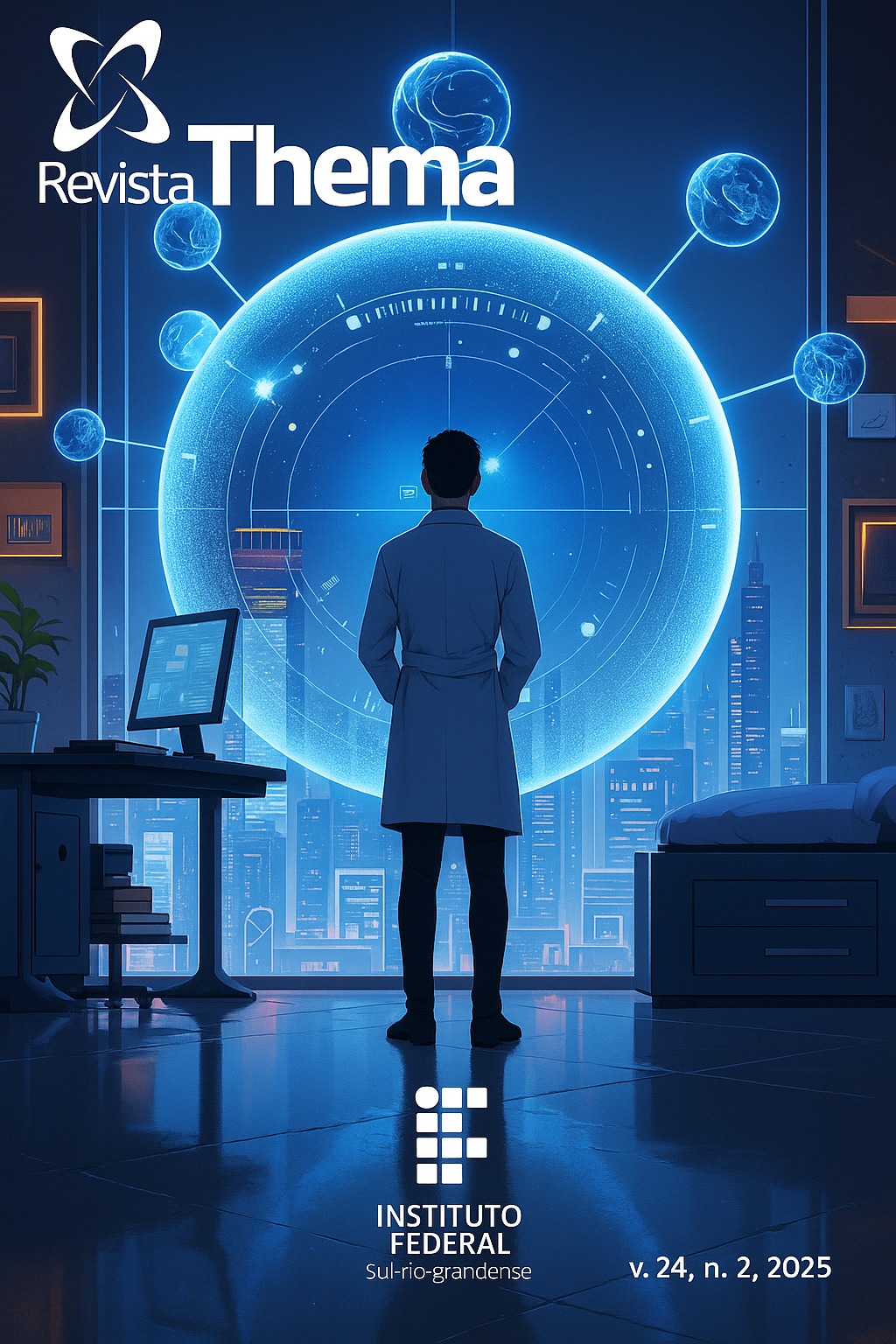A Base Nacional Comum Curricular e os Desafios do Ensino de Matemática nos Anos Iniciais
A Perspectiva dos Professores
DOI:
https://doi.org/10.15536/revistathema.24.2025.3273Palavras-chave:
Parâmetros Curriculares Nacionais, Base Nacional Comum Curricular, Teacher trainingResumo
O Brasil vivenciou nos últimos 20 anos, propostas pedagógicas que envolveram, dos PCN (BRASIL, 1997) à BNCC (BRASIL, 2017). Assim, visa-se analisar as modificações e contribuições nos processos de ensino e de aprendizagem, ocorridas nesse período. Trata-se de uma pesquisa qualitativa, exploratória e descritiva, por meio da análise do conteúdo. Para a obtenção dos dados, realizou-se um questionário eletrônico seguindo o modelo da escala Likert. Analisou-se as respostas de 10 professores, de três escolas da rede municipal de Fortaleza-Ceará. As análises evidenciam que os professores conhecem os PCN (BRASIL, 1997) de Matemática e destacam que o documento contribuiu na sua prática pedagógica. Sobre a BNCC (BRASIL, 2017), os docentes informam que conheceram o documento durante a formação continuada e utilizam na elaboração plano de aula. Conclui-se que os PCN (BRASIL, 1997), como documento norteador, cumpriram um importante papel durante as duas últimas décadas, na orientação curricular. Já a BNCC (BRASIL, 2017), como documento normativo, precisa ser melhor trabalhada na/para melhoria da prática docente.
Downloads
Downloads
Publicado
Como Citar
Edição
Seção
Licença
O autor responsável pela submissão representa todos os autores do trabalho e, ao enviar o artigo para a revista, está garantindo que tem a permissão de todos para fazê-lo. Da mesma forma, assegura que o artigo não viola direitos autorais e que não há plágio no trabalho. A revista não se responsabiliza pelas opiniões emitidas.
A Revista Thema é de acesso aberto (Open Access), sem que haja a necessidade de pagamentos de taxas, seja para submissão ou processamento dos artigos. A revista adota a definição da Budapest Open Access Initiative (BOAI), ou seja, os usuários possuem o direito de ler, baixar, copiar, distribuir, imprimir, buscar e fazer links diretos para os textos completos dos artigos nela publicados.
Todos os artigos são publicados com a licença Creative Commons Atribuição-NãoComercial 4.0 Internacional. Os autores mantém os direitos autorais sobre suas produções, devendo ser contatados diretamente se houver interesse em uso comercial dos trabalhos.





